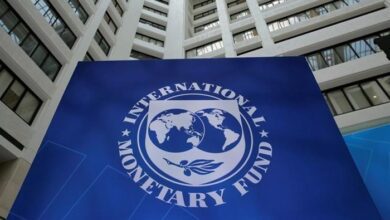What You Need To Know About CBN’s Lifting Of FOREX Restrictions On 43 Items

The Central Bank of Nigeria (CBN), on Thursday, October 12, 2023, announced,
among other policy issues, the lifting of foreign exchange restrictions hitherto placed on the importation of 43 items.
1. Why was there a restriction?
On June 23, 2015, the CBN issued Circular TED/FEM/FPC/GN/01/010, which put 41 product categories on a list of items not valid for FOREX in the Nigerian Foreign Exchange market. Two more product categories were added in subsequent years, bringing the total of imported product categories restricted from accessing FX to 43.
The restriction aimed at reducing foreign exchange demand for products that could be locally produced, improve employment generation and conserve foreign reserves.
The items were Rice, Cement, Margarine, Palm kernel, Palm oil products, Vegetable oils, Meat and processed meat products, Vegetables and processed vegetable products; Poultry and processed poultry products; Tinned fish in sauce (Geisha)/sardine; Cold rolled steel sheets; Galvanized steel sheets; Wheelbarrows; Head pans; Metal boxes and containers; Enamelware; Steel drums; Steel pipes, Wire rods (deformed and not deformed); Iron rods; Reinforcing bars; Wire mesh; Steel nails; Security and razor fencing and poles; Wood particle boards and panels; Wood fiberboards and panels; Plywood boards and panels; Wooden doors; Toothpicks; Glass and glassware; Kitchen utensils, Tableware; Tiles-vitrified and ceramic; Gas cylinders; Woven fabrics; Clothes; Plastic and rubber products; Polypropylene granules; Cellophane wrappers and bags; Soap and cosmetics; Tomatoes/tomato pastes, and Eurobond/foreign currency bond/share purchases.
2. Was there an import ban on these products?
No. There was only a restriction on buying FOREX in the official market to import these
items.
3. Why is the CBN now lifting the restrictions?
i. The restrictions pushed importers into the parallel market, contributing to the
surplus demand for FOREX. This weakened the parallel-market exchange rate, pushing up prices.
The CBN wants to promote orderliness and professional conduct by all Nigerian
Foreign Exchange Market participants to ensure market forces determine
exchange rates on a Willing Buyer – Willing Seller principle.
iii. The CBN wants a unified market for FOREX with flexible and transparent
pricing.
iv. The CBN wants to ensure price stability and is seeking to boost liquidity in the Nigerian Foreign Exchange Market. As liquidity improves, we expect the
distortions to moderate.
4. What are the implications of removing the FX restriction?
i. Monetary Policy tools become more effective with the attainment of a unified, well-functioning market for FX, where pricing is based on a willing-buyer and
willing-seller system. With this, the CBN’s core functions and mandates
become realisable.
ii. The willing-buyer and willing-seller system allows the exchange rate to adjust to clear the market and ensure that there is always supply. In recent months, the widening premium between the official rate and the parallel market indicates that the rate has not been setting a clearing price.
iii. Importers of these products rely on the parallel market to source FX for
importing these goods. This puts additional demand pressures on the parallel market, thereby widening the gap with the official rate and permanently
segmenting the market. Removing these restrictions eliminates the need for
importers of these products to go to the parallel market, reducing the pressure
on the naira.
iv. The hitherto FX restrictions had implications on inflation, causing the prices of affected goods to increase.
5. How does this benefit local production?
i. Local production will benefit from cheaper imported inputs, and consumers will benefit from cheaper retail products. The policy is suitable for a unified FOREX market and positive as well for inflation.
ii. It is expected that employment generation will be boosted as closed factories re-open. Price stability will benefit the economy and the standard of living in general.
Corporate Communications Department,
Central Bank of Nigeria (CBN).






